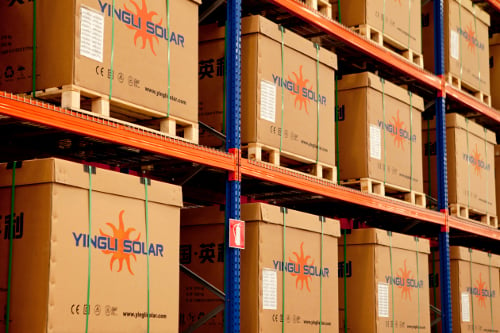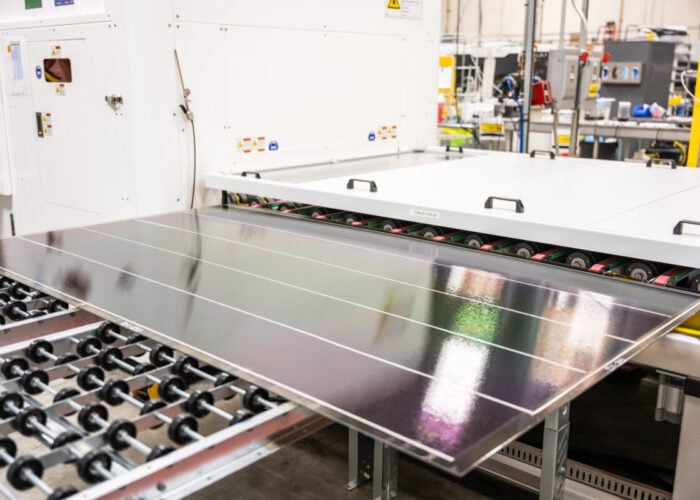
It didn’t make a ripple in the news agenda given that Intersolar Europe was in full swing and Brexit hysteria was at its peak, but last Thursday, analysts at Swedbank raised their expectations for REC Silicon. Among their reasoning was a two-step increase in the “probability” that there would be a resolution to China’s trade tariffs on US polysilicon, opening up the largest global source of demand.
So, bear with me, step one. Last week a judge in the Hemlock versus SolarWorld case denied a request by SolarWorld to re-open oral arguments and instead tells the company it has five days to file a 10-page summary of any additional arguments. Hemlock asked in March for a summary judgement in the US$770 million case. A hearing on this was scheduled for 9 June, moved to the 23 June before that was also cancelled.
Unlock unlimited access for 12 whole months of distinctive global analysis
Photovoltaics International is now included.
- Regular insight and analysis of the industry’s biggest developments
- In-depth interviews with the industry’s leading figures
- Unlimited digital access to the PV Tech Power journal catalogue
- Unlimited digital access to the Photovoltaics International journal catalogue
- Access to more than 1,000 technical papers
- Discounts on Solar Media’s portfolio of events, in-person and virtual
By refusing further oral argument, Swedbank, and others, expect the court to give a ruling on summary judgement without a trial.
“We believe it is unlikely that a 10 page letter from SolarWorld in the next five days will change the court’s intentions of moving forward to a ruling,” the bank said in a research note. “A summary judgement ruling could mean a Hemlock Semiconductor win within a matter of months.”
For its part, SolarWorld has stressed that any decision against would need to approval from a German court.
“According to our risk assessment regarding Hemlock, the probability that an actual outflow of resources will take place is considered as low, since it is unlikely that Hemlock will be able to enforce a possible US ruling in Germany because the underlying contracts do not comply with European antitrust legislation,” Milan Nitzschke, vice president at SolarWorld told PV Tech prior to the release of the Swedbank note. “European law would have to be taken into a consideration by a German court,” he said adding that international accounting rules which state that potential damages don’t have to be recognised in a company’s accounts unless “an outflow of resources is probable and the amount of the obligation can be reliably estimated”.
For these reasons the company has not accounted for damages in its accounts and attributed it as low risk in its annual reports. Probability of course, is subjective and there was and there was objections to its absence from some shareholders at its recent AGM.
Swedbank is not so certain that the US ruling would be toothless unless a German court had ratified it.
“Although SolarWorld allegedly has alternatives to stall the process in the event of a negative ruling, we also find several indications that a negative US ruling would have crippling effects on the company financials – forcing the company to reach a settlement with Hemlock,” it said in its research note.
So what does all this have to do with the rest of the US solar trade agreements? In an effort to confirm the following, PV Tech only succeeding in confirming that the worst kept secret in the industry; Hemlock has offered to withdraw its request for damages in return for SolarWorld withdrawing its petitions for trade duties on Chinese solar cells and modules.
This should then see the reciprocal duties on US polysilicon removed and Hemlock – and REC Silicon – would be able to benefit from access to Chinese manufacturers’ demand for poly.
Driving Deutsche Solar, the SolarWorld subsidiary named in the case, to bankruptcy wouldn’t help Hemlock recover any money.
PV Tech understands that an inevitable appeal would at the very least delay the requirement for SolarWorld to pay up. If the company did go into bankruptcy, the companies affected by the duties could claim a material change of circumstances and have the duties lifted. According to a trade lawyer familiar with the case, this would be a fairly flimsy request with SolarWorld, a theoretical SolarWorld bankruptcy administrator or a stand-in petitioner (N.E Other US Solar Firm Inc.) able to object and shoot the repeal of duties down.
In the event that the trade cases were overturned, the money locked up in customs deposits won’t be released any time soon.







